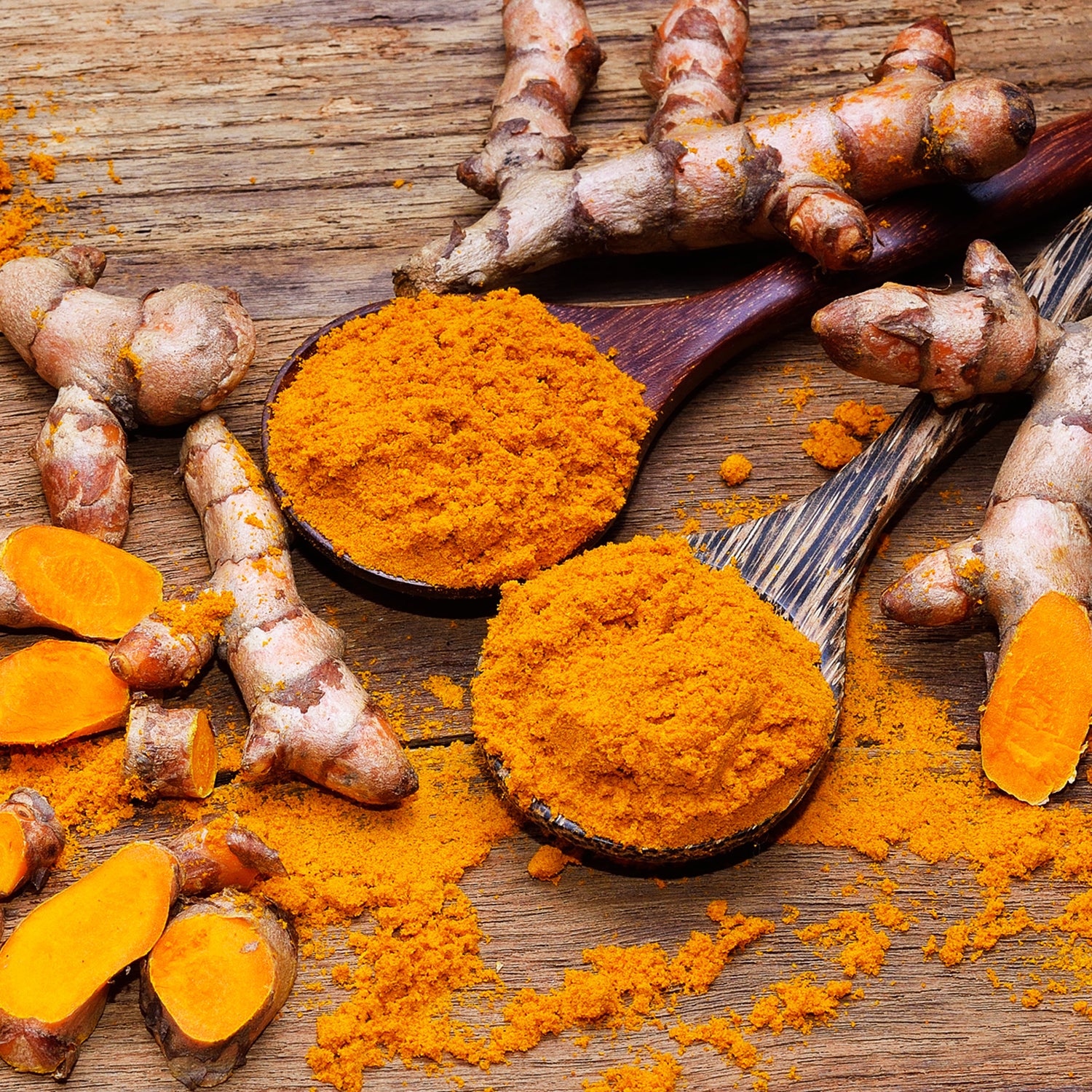If American cross-country skier reaches the podium at the Winter Olympics in South Korea this February, it’ll inevitably be thanks to thousands of hours of training. But he’ll tell you that his spice rack has something to do with it, too.
About three years ago, Newell, 33, began incorporating turmeric—the yellowish-orange herb lauded for its power as a detox agent—into his diet, eating it in curries and dusted on cauliflower. He even began taking it in pill form.
For centuries, practitioners of Ayurvedic medicine, an Indian tradition that purports to heal the body through meditation, massage, and a variety of herbs and food, have claimed that turmeric helps decrease inflammation and pain. More recently, some studies have shown that , a chemical in the turmeric plant, might be responsible for the spice’s healing effects. Newell, who takes 540-milligram capsules of turmeric before big runs and heavy days in the gym, says it makes a noticeable difference in his ability to recovery quickly.
“It helps me bounce back quicker after hard sessions,” says Newell. “There have been times when I’ve forgotten to take it, and, when that happens, I feel the fatigue more in my joints. We do four-hour mountain runs, and that’s a lot on your knees and ankles. If I do take it, I feel it less in my knees and ankles.”
Newell also believes that as the margins shrink between top-tier competitors, the spice might be the difference between gold and silver. It might come down to how soon you can get back at it after a tough workout. “Everybody knows how to train hard,” he says. “It’s more about how quickly you can recover. Controlling inflammation might give you that small edge in recovery and help you get faster.”
Using herbs as performance enhancers in sports isn’t new. During the Cold War, Soviet scientists the effects of rhodiola, a yellow-flowered succulent that grows in arctic climates, on its athletes. They found that using it boosted the athletes’ endurance and decreased their recovery time. But they found that steroids and other manufactured substances worked better, prompting the shift toward today’s .
These days, as drug tests become more sophisticated, more athletes are embracing clean competition, and a desire to know what exactly you’re putting into your body has become paramount. Legal adaptogens—plant compounds that, some believe, allow humans to adapt more easily to physical and mental wear and tear—are becoming more popular. That includes well-known herbs like ginseng, touted as an energy booster. And it’s not just the pros who are seeking out herbal performance enhancers.
by the Natural Marketing Institute, which researches the natural products marketplace, showed that 118 million adults used herbal supplements in 2015, up 39 percent from 2011. Of that group, millennials reported using adaptogens most often as an exercise aid.
Similar to the supplement industry of gym rats and power lifters, though, it’s critical to ensure that whatever herbs you’re taking contain what they advertise. A few for selling products that add volume with ingredients like ground grass and contain only trace amounts of the herb on the label. As the popularity of these more natural alternatives grows, many athletes and amateurs alike want to keep the herbal supplement industry clean. This effort has given rise to a host of new products. Big-wave surfer Laird Hamilton sells a , as well as another creamer that contains Aquamin, a patented sea algae that’s supposed to aid in joint and gut health. Thorne Research, a supplements company based in Idaho, is the supplier to 11 U.S. Olympic teams and markets curcumin capsules.
Currently, many outdoor and endurance athletes are salivating over , a combination of 30 botanicals, including ashwaganda, which some laboratory studies show increases hemoglobin and red blood cell count in animals. Hanah One is also made with honey, ghee, sesame oil, and sugar cane, resulting in a molasses-like paste that people mix into their coffee and smoothies or simply spoon right into their mouths.
The company’s founder, Joel Einhorn, a former amateur triathlete, says he dropped almost an hour from his Ironman time after he began consuming the concoction. Einhorn, who launched Hanah One in November, is now selling about $50,000 worth of product per month to people like surfer Mark Healey, who’s placed several orders. Alpinist Jimmy Chin liked the goo so much that he signed on as a paid ambassador.
But sports nutritionists are split over the efficacy of herbs. , a sports dietitian who works with Olympic athletes and professional sports teams, says she’s found great success prescribing rhodiola to runners, cyclists, and swimmers. She points to another Russian study, this one from 1987, conducted on cross-country skiers that showed that taking 150 milligrams of rhodiola improved the athlete’s work capacity by 9 percent. “It increases energy and focus and mediates the stress response and doesn’t have any side effects,” says Lewin. “That’s a fairly unique combination.”
On the other hand, nutritionists for the U.S. Olympic Committee (USOC) dismiss the virtues of adaptogens. “The last review of literature I did on this topic did not produce any positive results in terms of their use in enhancing performance or recovery,” says , a senior sports dietitian for USOC. “So, without clear evidence behind their use, and in the absence of a quality product, I do not use this product with my athletes or teams.”
Ellen Coleman, a sports dietitian who’s written several on sports nutrition, echoes those sentiments. “There is no good rigorous double-blind, placebo-controlled research to support the safety and effectiveness of adaptogens,” she says.
In fact, studies have shown that certain consumer herbal concoctions that are touted as performance enhancers likely work no better than a placebo. In by the University of Virginia, 16 men and eight women were prescribed a 12-week training program. Half were given an herbal supplement called StemSport, a proprietary blend of adaptogens that the company claims “may play a role in assisting the recovery process, thus reducing recovery time and enhancing the natural renewal process.” The other half were given a cornstarch capsule. None of the subjects knew which pill they were ingesting.
At the end of the 12-week period, both groups showed significant improvements in strength and stamina. But the group taking the herbal supplement didn’t improve any more or less than the group taking the placebo.
For many athletes, however, the placebo effect is all they need. “In my case, it doesn’t make a difference,” says Newell. “If it’s something that makes you feel as though you’re getting an edge, that’s fine. If you’re getting it through the supplement or through the placebo effect, it still might be that small edge you need.”


